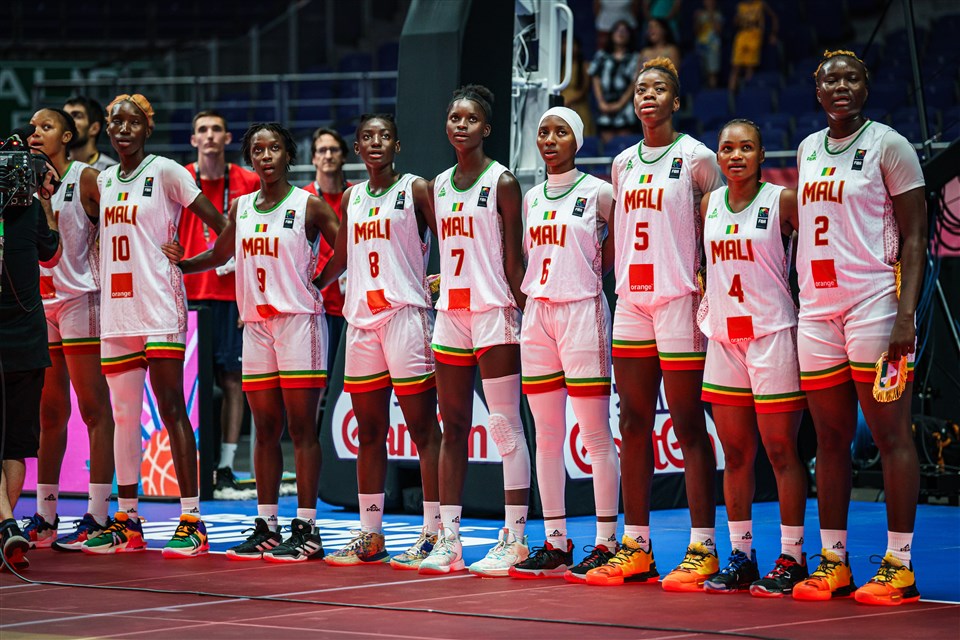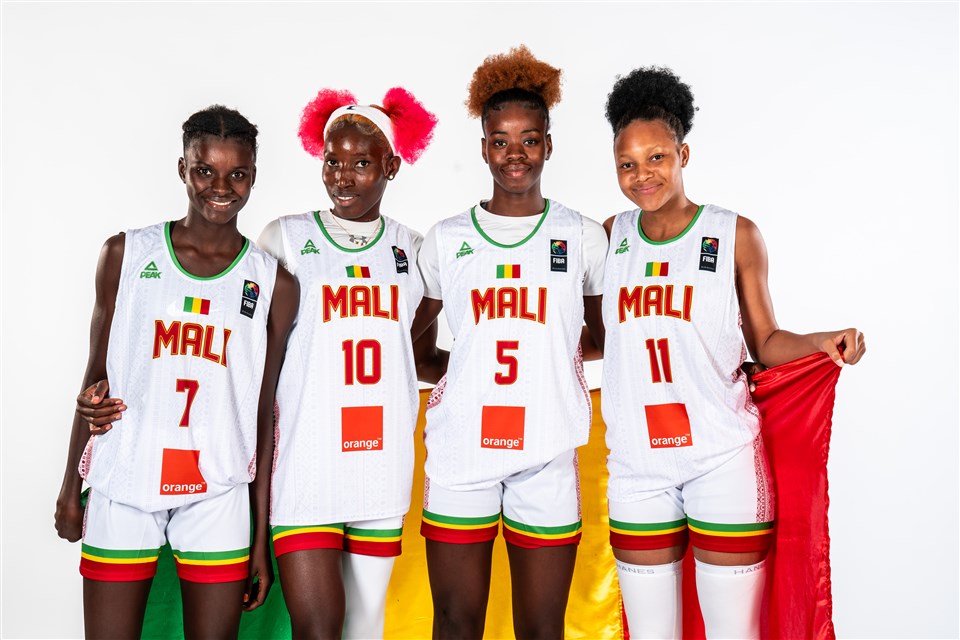Mali and Egypt took off for Madrid, Spain in July of last year to represent Africa in the FIBA U19 Women’s Basketball World Cup of 2023.
Mali had an outstanding performance, and the West Africans once again defied all odds to finish fifth when the tournament came to an end in a classification match against Japan at the Palacio de Desportes de la Comunidad Madrid.
Mali advanced to the Semi-Finals two years prior, losing 88-67 to the host nation, Hungary. However, it’s important to remember that no other African team—men or women—has ever advanced to the World Cup Quarterfinals, which puts Mali’s accomplishment in perspective.

Mali accomplished an amazing feat in the 2023 global festival, which included 16 participants in the capital of Spain. The team wrote an important chapter in both Africa and the world.
Their achievements demonstrated that the continent possesses a wealth of talent that, with proper nurturing, can rival any in the world. This may also indicate that the youth program of the nation is effective.
It also demonstrated how the Federations could raise the bar for the game with vision, effort, dedication, planning, and focus.
Mali did, in fact, demonstrate that the game’s growth is in capable hands and that the future is bright. The successes of the nation’s basketball Federation, led by Coach Diakite Sory, gave every African hope that anything is possible.
Thus, the unavoidable question still stands: What is Mali’s youth basketball program doing that other countries on the continent cannot imitate?
Let’s examine its origins and history. The team’s journey to victory in the competition got off to a rough start as they were in Group A. They lost to USA 88-65, who went on to win their tenth championship.

They gained the much-needed confidence moving forward and went on a roll after overcoming that setback. They defeated Germany 73-66 and defeated Chinese Taipei 83-68.
They defeated Australia 74-67 to advance to the round of 16. They will play Canada in the Quarterfinals as a result of this outcome. Their loss was 82–69.
In the classification round, the Malians prevailed over Lithuania by a slim margin of 56–53, continuing their heroics. Their fairytale run in the championship did not stop there, either.
In a match to decide position five, they faced Japan. They triumphed 73-61, thanks in large part to a steal and layup by standout player Maimouna Haidara.
The team’s success is attributed to forward Haidara, center Mana Cisse, and forward Sira Thienou. Haidara’s colorful hairstyle complemented her on-court exploits.
Haidara performed admirably the entire competition. Her 24.6 points per game performance inspired Mali.
She recorded the most steals in her second World Cup game and only the third triple-double in the competition. In a game, she was the first player to get to double digits.
Haidara recorded a double-double in the competition with 15.9 points, 13.0 rebounds, and 3.1 assists. Thienou contributed 15.4 points, 5.7 rebounds, and three assists, while Cisse contributed 10.6 points and 6.7 rebounds to help her.
Thienou was crucial to Mali’s incredible performance, even though her high-achieving teammate received all the justifiable attention. Her stats were strong, supporting her colleague’s leading performance.
Along with Jana Elalfy of Egypt, Awa Fam of Spain, Syla Swords of Canada, and Dominka Paurova of the Czech Republic, Haidara was a member of the All-Second Team.
Egypt, which was placed 12th in Group D, defeated Chinese Taipei 83-70 and China 60-56 in its two victories. However, they created an unstoppable force in Elalfy, who dropped 38 points to tie for fourth place with Liz Cambage.
FIBA
